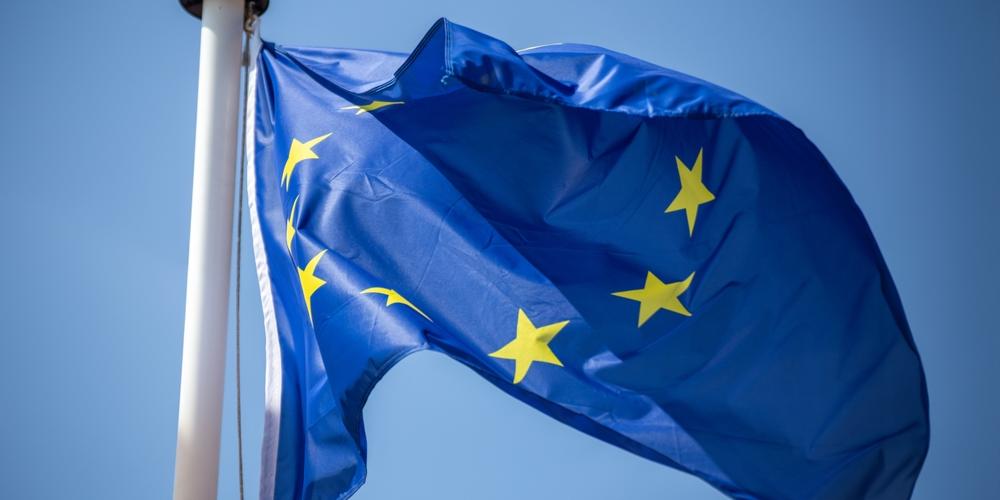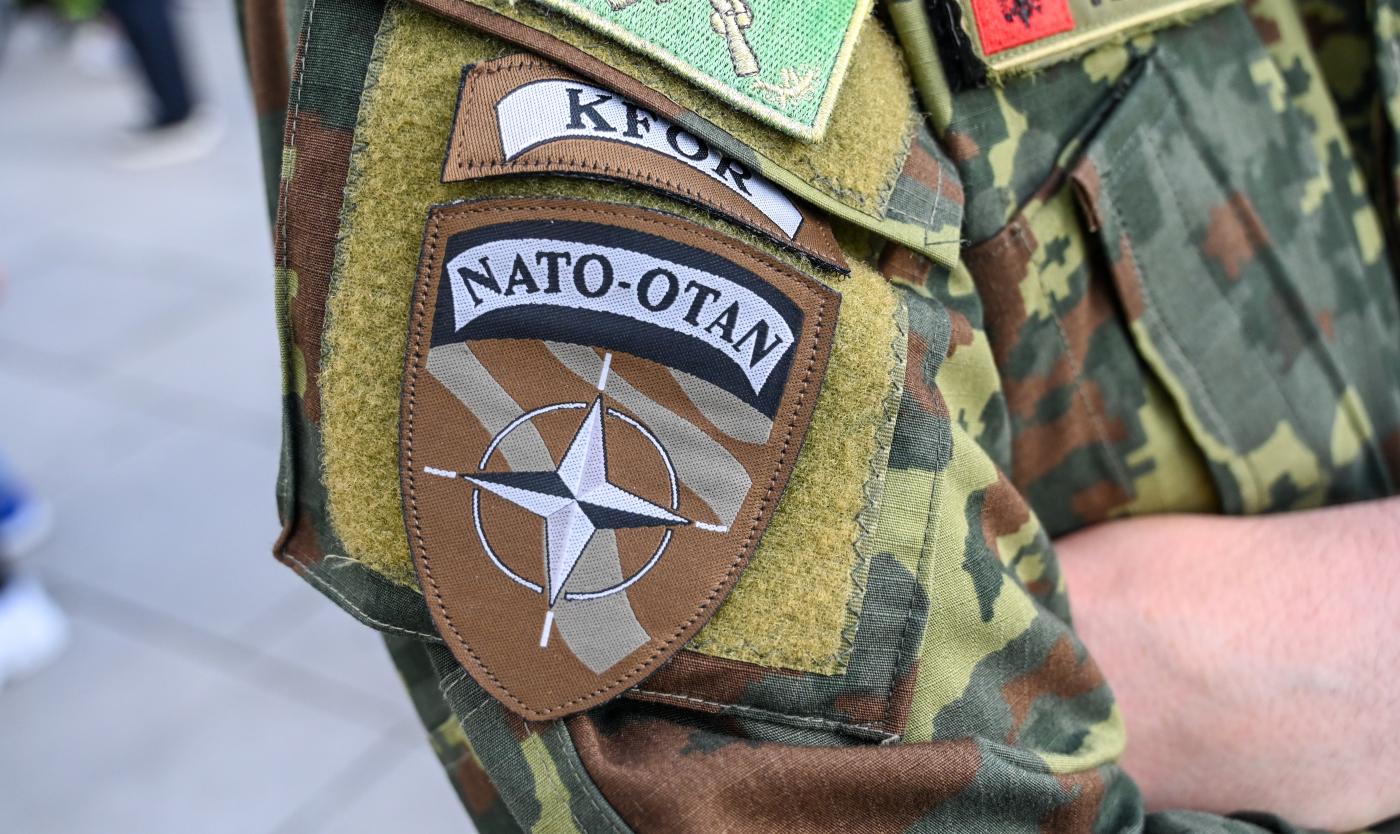
In May, VUB highlights its values of freedom of thought with the campaign ‘Free Thinking. Everywhere!’ Together with Professor Merijn Chamon, we take a moment to reflect on V-Day on 8 May (marking 80 years of peace) and Europe Day on 9 May (celebrating 75 years of European cooperation).
These two days are closely intertwined, as the precursor to the EU — the European Coal and Steel Community (ECSC) — was established to preserve peace following the Second World War. Now, 80 years on, we can’t shake the feeling that everything is once again on shaky ground. Fortunately, there are legal experts like Merijn Chamon who don’t simply rely on gut instinct. Merijn is a professor of EU law at VUB, and his research focuses on the constitutional and institutional law of the European Union.
When did the story of peace and unity in Europe begin?
Merijn Chamon: “On 9 May, we commemorate the historic proposal made by Robert Schuman, the French Foreign Minister in 1950, which laid the foundation for European cooperation. There had already been attempts before the Second World War to establish a European federation, notably by French minister Aristide Briand. After the First World War, the aim was to prevent another conflict. That plan ultimately failed, largely because the idea of a federation was simply too ambitious at the time.
After the Second World War, the same goal resurfaced — but this time, peace was pursued through a more modest form of cooperation, focused solely on coal and steel. That was no coincidence: the war industry depended heavily on coal and steel. By placing those sectors under joint management through the European Coal and Steel Community (ECSC), it became far harder to use them for military purposes.
But the intention wasn’t to create a federation — it was about forming a partnership between existing nation states. That cooperation steadily deepened, and led to increasing interdependence: if something happens in the Netherlands, we feel it in Belgium, and vice versa.
Once that interdependence was legally recognised, it no longer made sense to pretend we were fully sovereign states acting independently of one another. We began with coal and steel, and today it’s hard to think of any area where the EU isn’t involved. Not because of some secret plot to build a superstate, but simply as a way of managing that interdependence as effectively as possible.”
A national politician can take a strong stance against the EU — but neither the EU nor voters in other member states can hold them to account at the ballot box.
So does European law take precedence over national law?
“Not necessarily. But when there’s a conflict between the two, European law does take precedence. That may sound dramatic, but it’s perfectly logical — if every member state insisted that their own laws took priority, cooperation would be meaningless. Really, the whole debate over which law comes first is more of an academic one — or political, for those campaigning. In the Netherlands, for instance, the right-wing government pushing for ‘less Europe’ is being reined in by its own judges, because its plans contradict EU treaties. But there are also countries — Hungary, for example — where national courts have increasingly been brought under government control.”
Is the EU responding to populist demands for more national sovereignty?
“Not particularly — we’re still moving towards greater integration. That said, European law is highly flexible and does take national sensitivities into account. The idea that rules are just imposed on member states isn’t accurate. It’s the member states themselves who set the rules, through the Council of Ministers. Usually not by unanimous agreement, but certainly by large majorities.
Politicians often spin a different story for their domestic audience. It’s easier for them to talk tough on the EU. In Flanders, you can score political points by being combative towards Wallonia — you’ve got no votes to gain or lose there. You see the same thing at EU level. A national politician can lash out at the EU without consequences, because neither the EU nor voters in other countries can punish them at the polls. They simply don’t care about how popular they are abroad.”

Merijn Chamon, professor EU-law
When it comes to EU sanctions against Russia, unanimity is required — which leaves us stuck with Hungary as a Trojan horse.
Smaller countries are said to have little influence.
“To get a decision approved in the EU Council of Ministers, a ‘double majority’ is needed: at least 55% of the member states must vote in favour, and those states must together represent at least 65% of the EU’s population.
The member states want the EU to function as democratically as possible, but at the same time, the Union remains an international organisation — not a federal state. That creates a natural tension. For instance, Belgium carries the same weight as Germany under the 55% rule, even though Germany has a much larger population. That’s why the 65% component was added — to ensure that more populous countries, like Germany, have greater influence. This double majority — 55% of member states and 65% of the population — is a compromise. It helps ensure democratic legitimacy without allowing the largest member states to dominate the Union entirely.”
But when it comes to support for Ukraine, Hungary — the perennial troublemaker — blocks everything?
“You’re dealing here with the EU’s Common Foreign and Security Policy. In principle, that requires unanimous agreement. Every member state has the right to veto EU foreign policy decisions, and they also retain their own national foreign policy.
The Netherlands and Denmark, for example, donated F-16s to Ukraine not because of any EU mandate, but on their own initiative. The same applies to EU sanctions against Russia — unanimity is needed, and that’s where Hungary becomes a problem, acting as a kind of Trojan horse. That said, Hungary has so far continued to vote in favour of EU sanctions. If they were to vote against, individual member states could still impose sanctions on Russia’s war economy independently. When it comes to sending funds to Ukraine, however, the Hungarians always make things difficult until the very last moment — and then, behind the scenes, they’re compensated in some form.”
“Just kick them out,” many people think.
“Legally, that’s not possible. There is a process for a member state to voluntarily leave the Union, but not one to expel a country against its will. What is possible is to strip a member state of its voting rights. But even that requires unanimous agreement from all other member states — and that’s unlikely ever to happen, because there will always be at least one state that blocks it. Under the previous Polish government, that blocker was Poland. Now Slovakia has taken on that role. That’s why, in recent years, another tool has been developed to allow EU funds to be frozen if the rule of law in a member state is compromised in a way that affects the EU budget. For instance, if there’s no longer an independent judiciary to which citizens or businesses can appeal in cases like flawed public procurement. But that’s just a drop in the ocean. It would be far simpler if the EU could act like the Council of Europe — which operates independently of the EU. Russia, for example, was expelled from the Council following its invasion of Ukraine.”
If the International Court of Justice issues a ruling, a sovereign state can simply ignore it.
So let’s go with our gut for a moment — it feels like the role of international organisations like the UN is being completely hollowed out.
“In the UN Security Council, some countries have a veto — so Russia will never be formally condemned. It’s possible to pass a resolution against the Russian occupation, but you still need a country willing to deploy troops to enforce that resolution.
In that sense, the power of international organisations is very limited. Whether international law is respected depends entirely on good faith. If the International Court of Justice delivers a ruling, a sovereign state can ignore it. There’s no international army — nor is there an EU army. And if the European Court of Justice issues a judgment, whether it’s respected depends on the political maturity of states and their leaders — whether they accept that we’ve created a system based on the separation of powers, and that the executive must respect the rulings of the judiciary. That’s a matter of civilisation.”
That civilisation seems increasingly hard to find. Surely Europe must be able to enforce things more strongly?
“A European army has been under discussion for a long time. For some, it’s heresy — after all, the EU is a peace project. But on the other hand, it makes little sense not to have a shared defence, especially since Belgium’s security depends on how safe things are in EU countries that border Russia. If you accept that, then the idea of a European army becomes a logical step. Particularly now that NATO can no longer count fully on the United States.”
We’ve been talking about what can or cannot be imposed from the top down. But what about all the lobbying that influences the EU from the bottom up? Shouldn’t there be stricter oversight?
“Lobbying, in principle, is a good thing. Politicians often struggle to stay in touch with the grassroots — and that includes not just individual citizens, but businesses and institutions too. As long as it’s about conveying signals from society, lobbying is extremely useful. Of course, there’s a risk that certain interests find their way through more easily than others — and that we lack transparency about who actually has access to politicians.
That’s why the EU has a transparency register, and requires lobbyists to register meetings and declare their activities. The system isn’t watertight, but in this area, the EU is more transparent than either Belgium or the United States.”
Curious about the forces shaping world politics?
Discover VUB's study programmes:
Microcredentials and postgraduates: Democracy: challenges and futures EU Policy Making
Bachelors: Politieke wetenschappen Social Sciences
Masters: European Integration European and International Governance
ALL PROGRAMMES IN ENGLISH ALL PROGRAMMES IN DUCTH

